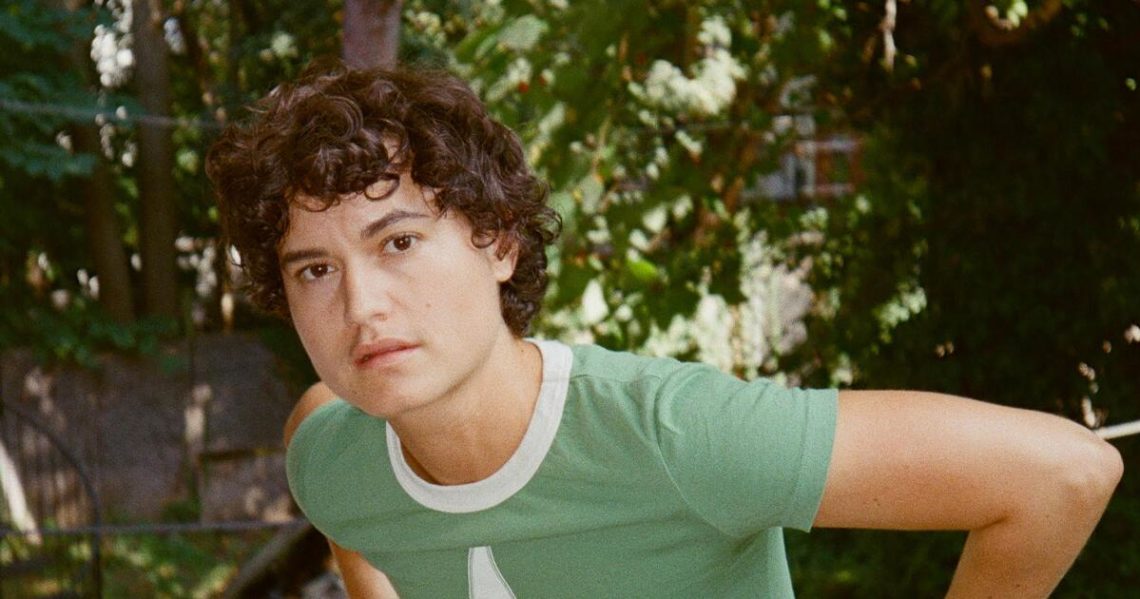Lío Mehiel has been working for a moment like “After the Hunt” for a long time.
Directed by Luca Guadagnino, this thorny morality play of a film set at Yale University pits well-liked professor Alma (played by Julia Roberts) against both her protegé, Maggie (Ayo Edebiri), as well as her longtime friend and colleague Hank (Andrew Garfield) during a scandal that risks her entire academic career.
Amid that starry A-list cast, the actor plays Maggie’s partner, Alex. The film, which had its world premiere in August at the Venice Film Festival, is Mehiel’s most high-profile project yet.
“There is so much time as an artist where you are doing the work and nobody cares and you have to find within yourself the motivation and the commitment and the drive to keep going,” Mehiel tells The Times. “Because you know that when you are going to be able to reach people, it will be worth it.”
Such a step has been years in the making. Mehiel, who lived in Puerto Rico until they were 5 years old, began their creative endeavors almost as soon as they arrived in New York City, first as a salsa dancer and later as an actor. By the time they were in fifth grade they were attending Broadway auditions, eventually booking a role in the 2003 revival of “Cat on a Hot Tin Roof” starring Ashley Judd and Jason Patric.
But as they began finding their own sense of self and body, they also found the kind of opportunities that led them to “After the Hunt.” That began in earnest back in 2023, when they starred in Vuk Lungulov-Klotz’s film “Mutt” as Feña, a role they booked after cold-emailing the director and telling them they’d do anything to win that part. The film chronicled a particularly hectic day in the life of a young trans man in New York City, as he struggles to rekindle old relationships he’d severed since he’d transitioned. Mehiel’s soulful performance won them a Special Jury Award for Acting at the 2023 Sundance Film Festival, putting them on the map as a trans Latine performer to watch.
“Moving forward from ‘Mutt,’ I was really interested in building on that momentum to what’s next,” they say. Not just in terms of their career but in the broader cultural conversation around contemporary queer and trans representation. The following year, they returned to Sundance with Alessandra Lacorazza’s “In the Summers,” which walked away from the festival with the U.S. Dramatic Grand Jury prize — the first for a film directed by a Latina director. Like “Mutt,” that sun-dappled film found Mehiel breathing life into a trans character navigating a thorny relationship with their father (played by renowned Puerto Rican rapper Residente).
Mehiel has long been building a body of work that centers on the very work of having a body. Just this past summer, they visited the Salton Sea for a performance installation titled “angels of a drowning myth.” In photos from that day, Mehiel is seen naked and half-submerged into that so-called sea, posing alongside a bust of their own chest made six months after they’d received top surgery. A portrait of a body twice represented, Mehiel’s piece stressed the solidity and malleability of their own body, and the beauty they find within and around it. Their work moves past familiar ideas of the body in transition, gleefully embracing the messiness of the queer experience and refusing the easy siren call of visibility.
“‘After the Hunt,’ is such a beautiful example of that because Alex is a queer and trans character, but we just see them getting home from a run, taking their shirt off, being with their partner, dealing with stuff that has nothing to do with their queerness,” Mehiel says.
That moment Alex first appears on screen is quintessential Mehiel. Not just because of the honeyed intimacy their sweaty, bare chest exudes. But because their appearance immediately reframes everything audiences have heard about this seemingly militant, radical social justice warrior. Alex at first appears as a figure of “woke” culture there to defy the older generation Roberts’ Alma comes to stand for. But there’s more to them than that.
“Alex doesn’t represent all queer people who have a political orientation in the world, all queer people who might attend a protest,” they explain. “I think what Luca did and what Nora did in the script was to give us all an opportunity to move away from identity politics. Instead, they gave each of the characters enough meat on their bones that they get to be complex, messy characters.”
“After the Hunt” may focus on complicated ethical questions surrounding sexual assault allegations at a university, but within that plot, Mehiel sees also a chance for viewers to catch a glimpse of characters like Maggie and Alex who may not otherwise be centered in such stories.
“I’m just excited that there is more exposure that people are having to queer and trans people and to queer relationships, and how that can fit in the context of a ‘normative’ world,” they add. “This is a movie with Julia Roberts, one of our biggest stars and crown jewels of Hollywood and of American cinema. There’s going to be a lot of folks that are going to see it because Julia is in it. And then they’re also going to get to experience a queer and trans person on screen who is likable in some moments and unlikable in others, just as much as every other character.”
That’s been Mehiel’s purpose for years now: to expand what queer and trans characters can look like on stage, on screen and, in turn, in real life. At a time when these communities are vilified by those who wish to harm them, Mehiel insists on the importance of such normalized visibility.
“Honestly, exposure to these experiences creates connection more than anything and allows people to feel comfortable,” they add. “Because the political climate right now — for the Latine community and for the trans community — is really hard and heartbreaking and challenging. And I think so much of it has to do with people feeling like they don’t know who these people are.”
A central kernel of the premise of “After the Hunt” is that you never know what someone is going through. And, more to the point, that making assumptions about other people’s experience can be extremely dangerous.
“This movie really serves as a mirror to the people that are watching it,” Mehiel insists. The film confronts audiences with their own biases and refuses any tidy conclusions.
But for Mehiel, the film will forever be remembered as a highlight of a career that is only bound to get bigger and more exciting. Just this year, they spent the summer at the Williamstown Theatre Festival starring in Jeremy O. Harris’ new play as well as serving as head of production for “Mother, Daughter, Holy Spirit,” a grassroots fundraiser for the Trans Justice Funding Project, all while continuing to pursue their various interests as artist, writer, and filmmaker. In that context, “After the Hunt” stands now less as a calling card than as a reminder of how far they’ve come and yet how much further they want to go. That film, now playing in theaters and coming soon to Prime Video, will widen the scope and reach of their artistry.
“Watching it, I was like, ‘I fit right into the fabric of the movie,’” they say. “On a personal journey level, I feel confident that I have the skill, the talent and the experience at this point to work with the masters that I dream of working with (if the sexy French filmmaker, Julia Ducournau, ever reads this interview, she should know that I want to work with her).”
Or, in much simpler terms that echo an ethos they’ve brought to bear on and off screen: “I just feel ready and able to actualize the things that I have been dreaming about for a long time.”
The post Lío Mehiel’s ‘After the Hunt’ role marks a milestone for trans Latines in Hollywood appeared first on Los Angeles Times.




